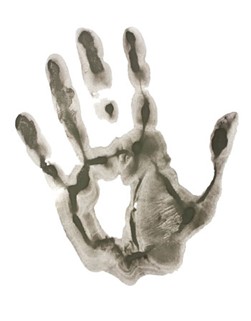Your after-prom party rocked. And you’ve got the pictures to prove it. And pictures this good, they’ve just got to be seen, right? Hello, Facebook.
But seen by whom? Before you upload your life into cyberspace, think about who exactly will be viewing those party pictures. Your friends, definitely. Your parents, maybe. But your college admissions officers? It’s possible.
While a survey by Kaplan found that 24 percent of colleges are trolling Facebook and other social networking accounts of their applicants, educational consultant Steven Roy Goodman says it’s hard to put a number on how many are actually doing it.
“A lot of colleges are hesitant to say that they do this because it appears a bit unseemly,” Goodman said. “But just because they don’t announce it publicly doesn’t mean that they don’t do it behind closed doors.”
One example that did make news was a student denied admission to Reed College in Portland, Ore., due, at least in part, to his blog on LiveJournal. According to Admissions Dean at the time, Paul Marthers, the student’s blog contained hostile comments about the college and certain officials. “I counsel students to be extremely careful about this,” Goodman said.
If you’re on the margins or are a later applicant to college, admissions officers are more likely to poke around on the Web for information on you, said Goodman. If they’re trying to decide between you and another student, illicit information on your social media accounts is an easy way to give you the boot and admit your competition.
Even if you are admitted, you should still exercise caution with what you post. At Louisiana State, two swimmers were kicked off the team for criticizing their coaches on Facebook and, at the University of Colorado, a football player was suspended from a bowl game for threatening another student on Facebook. And USA Today reported that John Brown University in Siloam Springs, Ark., expelled a student after seeing Facebook photos of the student in drag and reading his posts that he is gay and goes clubbing.
Parents are also savvy about social media and, even if yours are comfortable with what you post, your roommate’s parents might not be. According to The New York Times, the University of Michigan, New York University, the University of Washington, Dartmouth and Colgate University in Hamilton, N.Y., have all heard complaints from parents who don’t like what they see on their child’s roommate’s webpage. They all requested room changes for their children, though not many were granted. Colgate University reported the most complaints, 20, and Michigan reported hearing complaints just hours after roommate assignments were posted.
And don’t think colleges are the only ones checking in on you. Goodman says he’s heard from students who are applying to jobs that have had employers checking up on them.
“Employers are basically double checking to make sure there’s nothing fishy going on here with this young applicant,” he said.
Even students in middle school have faced repercussions from social media postings. In Costa Mesa, Calif., 20 students from TeWinkle Middle School were suspended after anti-Semitic comments and death threats surfaced, USA Today reported. Another student, this one in high school, in Colorado was suspended for posting pictures of himself holding handguns and faces the possibility of criminal charges.
But not everyone agrees that using the Web to research students is ethical. Students, obviously, argue their free speech rights are being clipped. Even some adults are saying the same.
“Using such spaces as a barometer of admissibility or employability is fraught with problems,” said Sandra Foy, a college counselor at Seattle Preparatory School. “I think that students talk to each other on these sites much as they would in real life. The difference is that college admissions officers and employers aren’t part of those conversations. Somehow it seems an invasion of their privacy to enter these, as well.”

 Lesson Plan Guide
Lesson Plan Guide